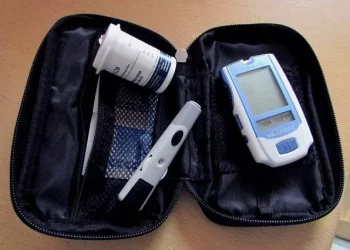Diabetes is a chronic condition that affects millions globally, leading to high blood sugar levels that can interfere with various bodily functions. If left unchecked, it can result in severe complications like kidney failure, heart disease, and blindness. A family history of diabetes, particularly type-2 diabetes, increases the likelihood of developing the condition due to both genetic factors and shared lifestyle habits within families. So, how can you reduce your risk if you have a family history of diabetes? Here’s some advice from an expert.
Understanding Genetic Predisposition
“People with a family history of type-2 diabetes are at a much higher risk of developing the disease themselves,” says Dr. Ashok Kumar Jhingan, Senior Director at the Centre for Diabetes at BLK-Max Super Speciality Hospital, Delhi. “Having a parent or sibling with type-2 diabetes can double or even quadruple your chances of getting it.”
While genetics plays a significant role, environmental factors such as shared eating habits and exercise routines within families also contribute. However, it’s important to note that not everyone with a family history of diabetes will develop it.
How to Reduce Your Risk
Stay Physically Active
Aim for at least 30 minutes of moderate-intensity exercise on most days to boost insulin sensitivity and maintain healthy blood sugar levels.
Manage Your Weight
Achieving and maintaining a healthy weight through a balanced diet and regular exercise can significantly reduce your risk of type-2 diabetes.
Adopt a Healthy Diet
Eat a well-balanced diet that includes fruits, vegetables, whole grains, and lean proteins, while limiting processed foods, refined carbs, sugary drinks, and unhealthy fats. Also, control portion sizes to manage calorie intake effectively.
Check for Nutritional Deficiencies
Certain vitamins like B2, B6, and D have been shown to help reduce the risk of diabetes. Ensure you’re getting enough of these vitamins through your diet or supplements.
Manage Stress
Chronic stress can lead to insulin resistance. Engage in stress-reduction activities like yoga, meditation, or simply spending time in nature.
Quit Smoking
Smoking is a significant risk factor for type-2 diabetes. Quitting can reduce your chances of developing the condition and improve overall health.
Limit Alcohol Intake
Excessive alcohol consumption can interfere with blood sugar control. Moderating your alcohol intake can help keep your blood sugar levels in check.
Prioritize Sleep
Getting 7-9 hours of quality sleep is essential for insulin sensitivity. Sleep deprivation can contribute to insulin resistance, increasing the risk of diabetes.
Regular Check-ups and Monitoring
Dr. Jhingan also recommends regular health check-ups, including blood sugar tests such as fasting, post-prandial, and HbA1c tests. Keeping track of your blood sugar levels can help detect any abnormalities early.
Final Thoughts
While genetics plays a critical role, other lifestyle factors like weight, stress, diet, and exercise habits can all influence the development of type-2 diabetes. Taking proactive steps now can help prevent diabetes from taking control of your health in the future.
Related topics:
How to Check Ketone Levels with a Glucose Meter
























